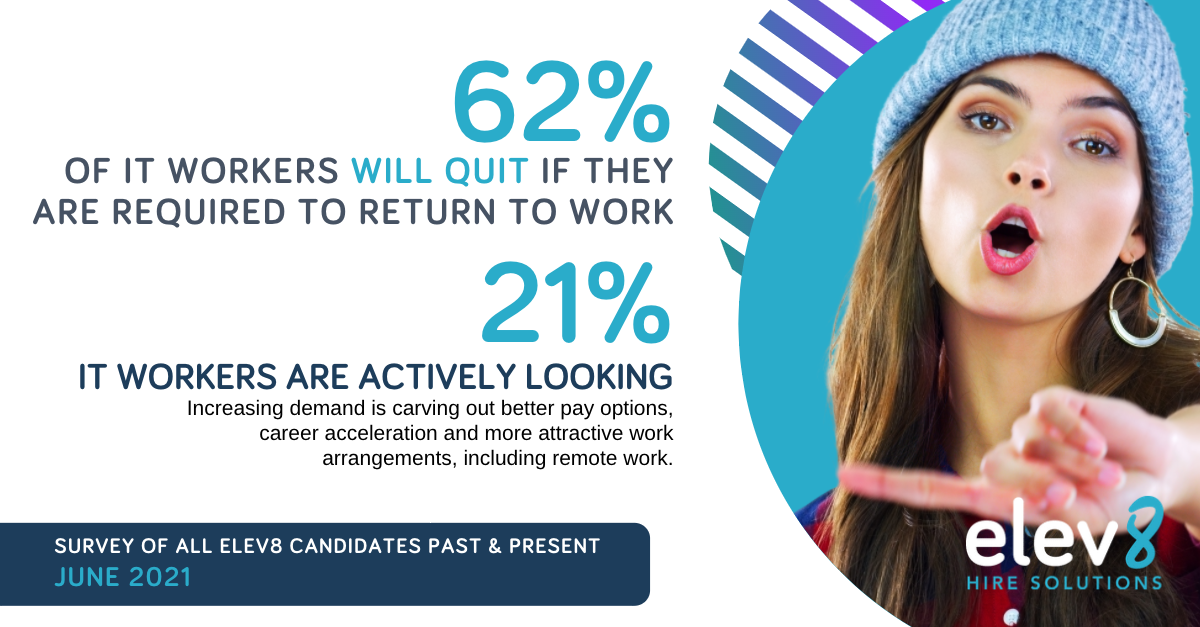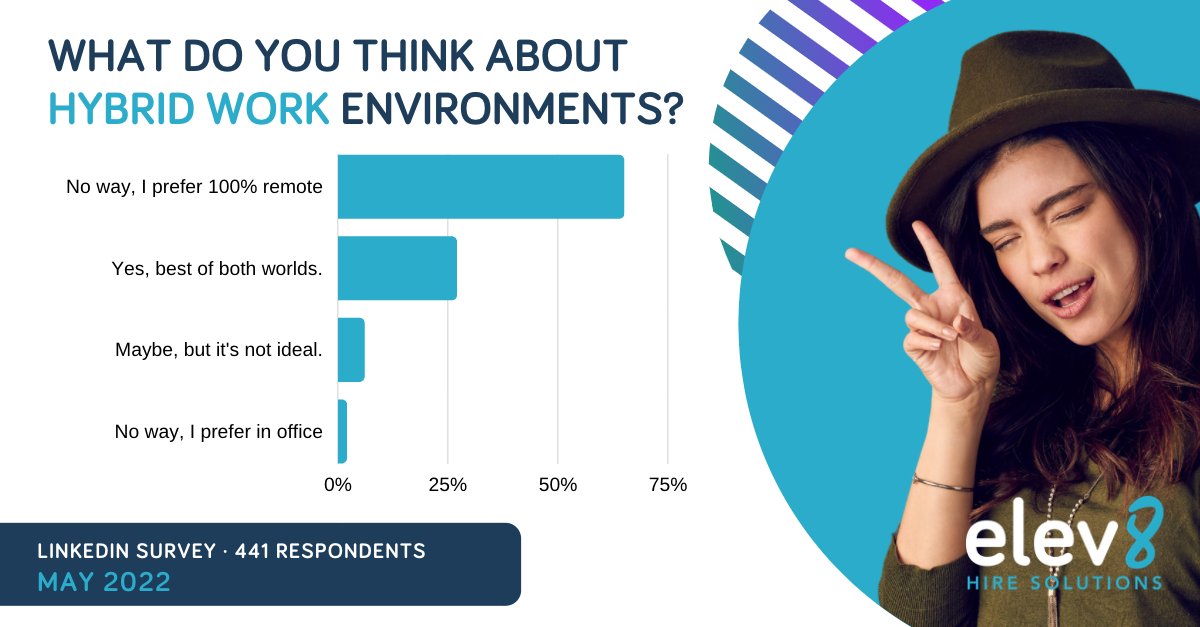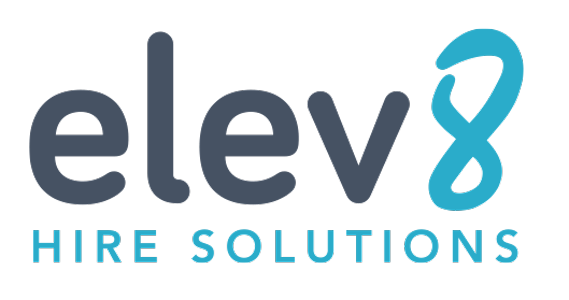
Are Hybrid Work Models Killing Recruiting?
As the pandemic wanes, companies are yet again changing where they work—and finding that going back to a physical office means it's harder to find workers.
Particularly for tech companies, employees adjusted almost effortlessly to remote work. Technologies like Zoom and Slack were already part of the daily diet, and easily embraced. So meetings continued on generally as normal, just with fewer people crowded around one camera. Collaboration also continued unfettered. Most companies already transitioned to cloud business services, for everything from document storage to email too. With generally great access to internet everywhere, activities that could be considered more efficient in an office setting became scarce.
For the most part, work in tech marched on without missing a step, providing the pandemic didn’t force any product reengineering.
Solidifying the Remote Work Preference
However, while work was unchanged, the life part of the work-life balance definitely improved. Freed from long commutes, and already accepting of the casually dressed hoodie culture, tech workers were liberated. They could work smarter, and reclaim hours of life each week.

By 2021, most workers proved that remote work really suited them. They dug in, and started quitting to find work that guaranteed them remote work by contract. This began the Great Resignation.
Fast forward to today, and we find it has only increased. In a recent survey Elev8 conducted on LinkedIn, 65% of workers greatly prefer 100% remote work. Only about one third of respondents would consider working in-house, even if it was just part time.

Hybrid Work Model Impact on Recruiting
At Elev8, we help candidates market and sell their jobs to candidates that we vet to match your culture. Hybrid work models match with very few candidates.
Over the past year, we noticed 70% of candidates will not respond to a position unless it's 100% remote. Hybrid work models limit your candidate pool down to the last 30%, and often, these aren’t the top candidates you are used to.
Of course, as recruiters, we do have ways to attempt to sell your role to that 70% that did not respond. We often pitch candidates on several roles. And, we’re often able to reach them when they respond to similar remote roles. Even then, candidates pass on the role, preferring to see how things pan out with the remote positions first.
“When I debrief candidates after each interview and ask them to rank their companies, the hybrid or in-office jobs rarely make it to the top," continues Cohen. "Their reason—they haven’t sat in traffic for 2 years, and just don’t want to make the adjustment. Hybrid work models are crippling talent management.”
The Way Forward
There are still benefits to working in-house even part of the time. Deeper, personal relationships increase empathy, so co-workers tend to actively support each other better. Collaboration sparks creativity in the craziest places, so some extra problems may be solved around the ping-pong table. Managers can also see dynamics play out across their team more clearly, and potentially can help smooth out or work around problems before they escalate.
The list goes on, and some benefits may outweigh the extra time and lower caliber talent for certain roles. For tech companies though, talent is their lifeblood and this is a perilous path.
“My advice is don’t do it. If you do create a hybrid work policy, you are asking to create a talent gap in your organization that could topple it. For tech talent, treat in-office work like travel, and only require tech talent to come in for special reasons—like big workshops, quarterly meetings, and training. It’s a strong candidate market right now, and companies must create environments that cater to them. There are no exceptions for IT.”

